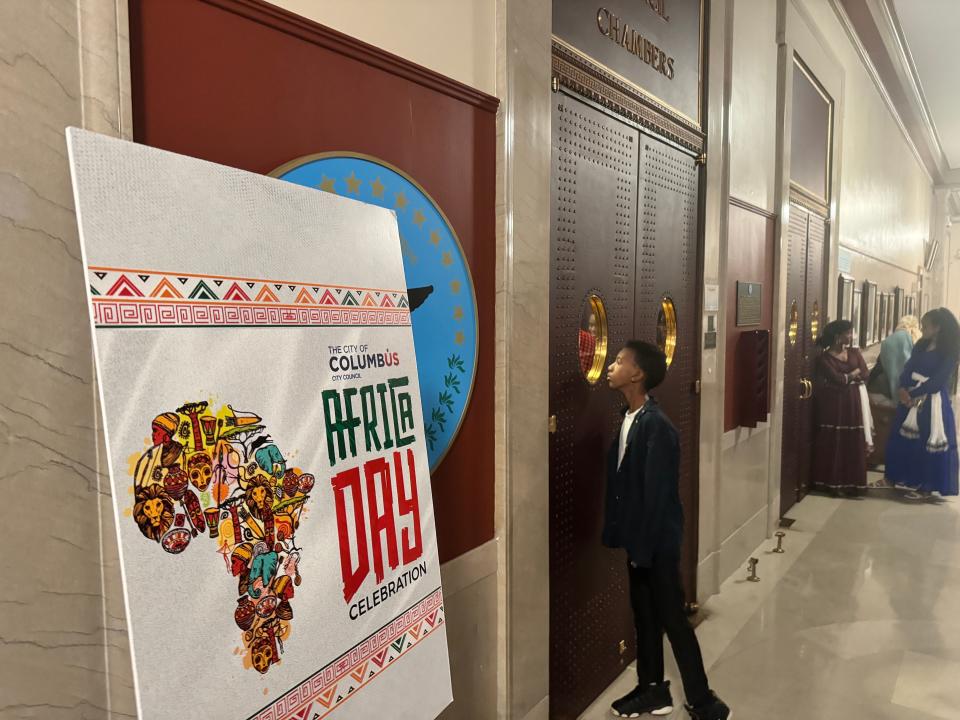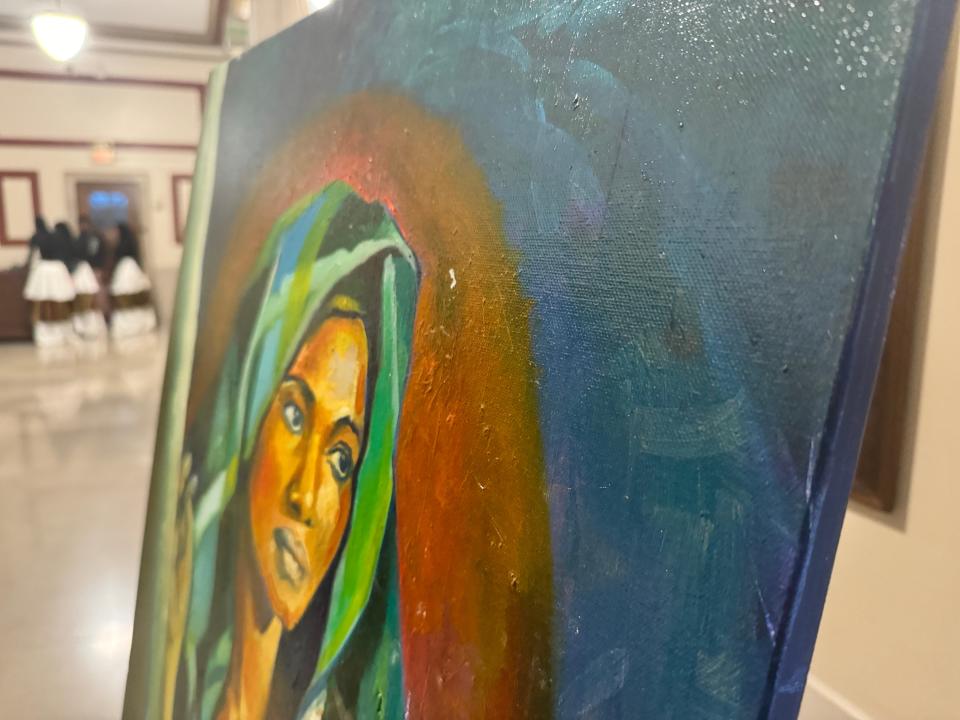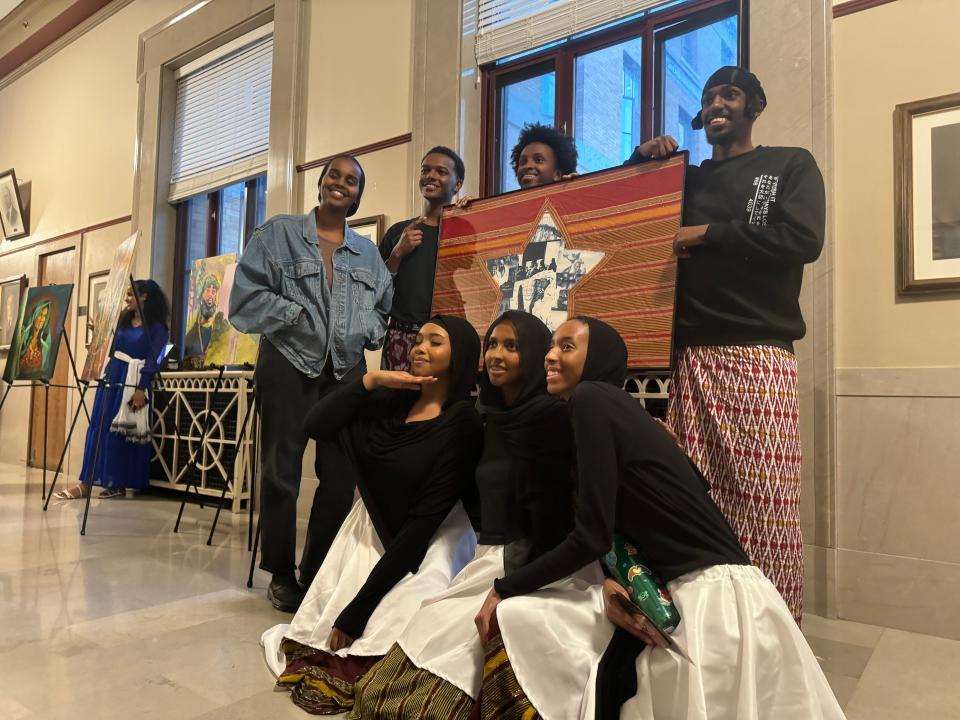Columbus highlights unity, culture and continued struggles in Africa Day celebration
In honor of the contributions Africans have made to central Ohio, Columbus leaders commemorated Africa Day — a widely celebrated anniversary of the success and independence of African countries — Thursday night with performances, art and a panel discussion.
Special remarks from Mayor Andrew J. Ginter and City Council President Shannon Hardin acknowledged the important role Africans have made in Columbus’ metropolitan area.
“I think what’s ahead of us is a (strong) community because the contributions of Africans (from) all over the continent is going to poise us for greatness in business, faith, art and culture,” Ginther said.
Hardin shared similar sentiments.
“If you ever want to question the impact from the African diaspora or African heritage, drive up 161 or Morse Road and see the impact this community is having on our hearts,” he said.
Members of the community shared three issues affecting new African communities — health care disparities, systemic racism and educational barriers — which were discussed by the panelists. Harrison Poku-Yeboah, a legislative advisor of community engagement for Columbus, said these issues will be sent to policymakers to ensure necessary changes are made.
“It's important for us to have a intellectual discussion where council members basically find ways to come up with a policy to help us out,” Yeboah said. “We’re going to make sure that council members continue to engage with the African community.”
Health care disparities and dismantling stigmas

Panelist Obianuju Aguolu, a professor of epidemiology at Ohio State and a Nigerian American, said new African immigrants mainly struggle to properly integrate into the health care system due to language barriers, income levels that impact insurance and a cultural habit to ignore minor health complications.
“Sometimes we think its low priority and we only go to the hospital when we’re dying and it also comes from culture," Aguolu said.
Tackling systemic racism
Upper Arlington Mayor and City Council President Ukeme Awakessien Jeter shared her personal stories of being both Black American and Nigerian American. Jeter said because African immigrants are unaware of the extent of historical racism is toward Black Americans, they often don't understand why they face systemic discrimination.
"Without a deep understanding of what that history is, you can't debunk biases and you can't understand how it applies to you," she said. "We might as well join hands together to offer a solution."
She also explained how economic accessibility can help combat systemic racism for the African community.
“It is hard to have a voice at the table if you’re not respected as having brought something to that table.” “I think we reduce racism when we start to improve access to economics.”
Facing educational barriers
The third panelist, Kobina Ayiety, a graduate from Ohio University and a Nigerian American, said most Africans immigrate to America with an educational visa but face issues with their transcripts and credentials lacking accreditation in the United States.

Attendees enjoyed cultural food and performances as well as artwork crated by local African residents.
“It means a lot to be surrounded by African artists and my community to showcase my work and learn more about other African cultures," said Ilham Hassan, a Somali American who drew a replica of the Somali flag that was on display.

The History of Africa Day
Africa Day, formerly known as African Freedom Day or African Liberation Day, is officially celebrated on May 25th to mark the anniversary of the Organization of African Unity established in 1963.
Though the organization was disbanded in 2002 and replaced with the African Union, Africans around the world still observe the foundation of OAU as the official declaration of unity, solidarity and sovereignty among African states.
With 14% of the population in Ohio being African immigrants from the sub-Saharan region, contributing several millions to state and local taxes, Africa Day was first celebrated in Columbus last year after a resolution that officially allowed the city to recognize the independence of African nations.
Burhan Ahmed, a Somali American and one of the organizers of the event, said it is important for residents to be aware of the role African immigrants play in the city’s economy and help support new African immigrants in their transition to life in Ohio.
“We created Africa Day to highlight some of the success stories and share issues that they are dealing with so that we improve.”
This year’s Africa Day was held a week before it is officially recognized in order to better accommodate schedules. Ahmed said they plan to do an illumination of City Hall on the 25th as well.
abayo@dispatch.com
This article originally appeared on The Columbus Dispatch: Africa Day: Columbus honors contributions by African community

